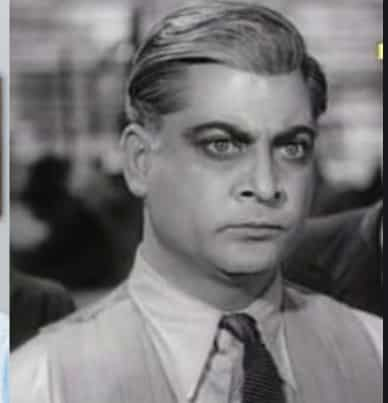Artistically, Olympic ceremonies are strange beasts. Taking years to produce, they are performed only once, with an enormous cast of amateurs.
Artistically, Olympic ceremonies are strange beasts. Taking years to produce, they are performed only once, with an enormous cast of amateurs. They are simultaneously global television spectaculars and theatrical productions, performed in cavernous sport stadiums.
They must invent a script that translates the abstract gobbledegook of Olympic philosophies and the host nation's idealised image into a largely wordless dramatic narrative using music, dance, mime and circus skills combined with a firework display and a flashing light show.
Building on Leni Riefenstahl's marching blueprint and getting souped-up by the Americans in 1984 with the showbusiness pizzazz of arena pop concerts, ceremonies have evolved a kind of universal language and aesthetic: bright, neon colours; tightly choreographed, synchronised bodies creating geometric shapes; futuristic set designs with tiered central stages; doves, flames, pom poms and cute children.
Their drama lies in their gloss and shine, their inhuman scale and shape transcending mundane reality.
Danny Boyle, the director, might have kept the flames and cute children and there were plenty of showpiece bangs during the final rehearsal but in every other respect his opening ceremony ripped up the rule book.
This was about punk rather than pomp. His palette for The Isles of Wonder wasn't primary brights but mud hues and matts, a Lowry-ish smudge of grass greens, industrial greys and even black. There were more cloth caps and bloomers than Lycra and sequins.
In place of doves, there were cows and ducks. Instead of a glittering space age set, Boyle filled the stadium with earth and bricks, conjuring centrepieces out of lopsided hillocks, chimney stacks, coal mines, hospitals and red brick houses.
His view of British history was quietly subversive, stripped of royal pageantry. This was the story of migration and immigration, protest and rebellion. The working classes were shown rolling the grass away from under their feet. A carousel of Jarrow marchers, pearly kings and carnival queens swirled around the arena.
Compared with the usually banal platitudes of global togetherness that goes on at an Olympics ceremony, this seemed politically charged.
However, Boyle was not trying to make some agitprop point. The working class, Irish Catholic boy from Bury, who came of age during the punk decade, has made a career out of depicting the travails of the working classes with sly humour and subversive surrealism.
Boyle's films have so often been about outsiders rather than individuals, whether that was Glasgow junkies, Thai beach bums or Indian slum kids.
This ceremony was also about Boyle the filmmaker and it was steeped in his signature moves: rapid montages, widescreen angles, fast zooms. More than anything it was a love letter to British film, TV and music, from Mary Poppins to Harry Potter, Lionel Bart to Soul 2 Soul. With his musical partners Underworld it paid homage to hits of the past 50 years spliced with the energy of the rave culture. This was the section that brought the whole show to life, and made me proud of modern Britain.
I'm not sure it all worked. Without pushing those traditional ceremonial buttons so cravenly Boyle traded the punch of a Lady Gaga-style arena show for a more opaque experience.
Kenneth Branagh is a fine actor but lacks the feral magnetism of Mark Rylance. Without powerful lead characters, the show sometimes lost focus combined with an almost baffling level of visual detail.
The pacing wavered and I have no idea what the rest of the world will make of shire horses or men in top hats gathered spouting Shakespeare. They might think it is the strangest episode of Downton Abbey they have seen.
Nonetheless, this opening ceremony was original, cool, intense and utterly compelling. More importantly underneath the old punk snarl, Boyle is a generous director unafraid of sentimentality or unabashed joy, and he filled this ceremony with heart and soul.
It was the hardest directorial job in the world but Boyle did us all proud.
![submenu-img]() Meet Gautam Adani’s ‘right hand’, used to work as teacher, he’s now Rs 1600000 crore…
Meet Gautam Adani’s ‘right hand’, used to work as teacher, he’s now Rs 1600000 crore…![submenu-img]() Meet actor who worked with Amitabh Bachchan, Aishwarya Rai, entered films because of a bus conductor, is now India's..
Meet actor who worked with Amitabh Bachchan, Aishwarya Rai, entered films because of a bus conductor, is now India's..![submenu-img]() Meet Bollywood star, who was a tourist guide, married 4 times, went bankrupt, his son died by suicide, then...
Meet Bollywood star, who was a tourist guide, married 4 times, went bankrupt, his son died by suicide, then...![submenu-img]() This actor made Sharmila Tagore forget her lines, once did film for Rs 100, could never be a superstar because..
This actor made Sharmila Tagore forget her lines, once did film for Rs 100, could never be a superstar because..![submenu-img]() Volkswagen Taigun GT Line, Taigun GT Plus launched in India, price starts at Rs 14.08 lakh
Volkswagen Taigun GT Line, Taigun GT Plus launched in India, price starts at Rs 14.08 lakh![submenu-img]() DNA Verified: Is CAA an anti-Muslim law? Centre terms news report as 'misleading'
DNA Verified: Is CAA an anti-Muslim law? Centre terms news report as 'misleading'![submenu-img]() DNA Verified: Lok Sabha Elections 2024 to be held on April 19? Know truth behind viral message
DNA Verified: Lok Sabha Elections 2024 to be held on April 19? Know truth behind viral message![submenu-img]() DNA Verified: Modi govt giving students free laptops under 'One Student One Laptop' scheme? Know truth here
DNA Verified: Modi govt giving students free laptops under 'One Student One Laptop' scheme? Know truth here![submenu-img]() DNA Verified: Shah Rukh Khan denies reports of his role in release of India's naval officers from Qatar
DNA Verified: Shah Rukh Khan denies reports of his role in release of India's naval officers from Qatar![submenu-img]() DNA Verified: Is govt providing Rs 1.6 lakh benefit to girls under PM Ladli Laxmi Yojana? Know truth
DNA Verified: Is govt providing Rs 1.6 lakh benefit to girls under PM Ladli Laxmi Yojana? Know truth![submenu-img]() Remember Abhishek Sharma? Hrithik Roshan's brother from Kaho Naa Pyaar Hai has become TV star, is married to..
Remember Abhishek Sharma? Hrithik Roshan's brother from Kaho Naa Pyaar Hai has become TV star, is married to..![submenu-img]() Remember Ali Haji? Aamir Khan, Kajol's son in Fanaa, who is now director, writer; here's how charming he looks now
Remember Ali Haji? Aamir Khan, Kajol's son in Fanaa, who is now director, writer; here's how charming he looks now![submenu-img]() Remember Sana Saeed? SRK's daughter in Kuch Kuch Hota Hai, here's how she looks after 26 years, she's dating..
Remember Sana Saeed? SRK's daughter in Kuch Kuch Hota Hai, here's how she looks after 26 years, she's dating..![submenu-img]() In pics: Rajinikanth, Kamal Haasan, Mani Ratnam, Suriya attend S Shankar's daughter Aishwarya's star-studded wedding
In pics: Rajinikanth, Kamal Haasan, Mani Ratnam, Suriya attend S Shankar's daughter Aishwarya's star-studded wedding![submenu-img]() In pics: Sanya Malhotra attends opening of school for neurodivergent individuals to mark World Autism Month
In pics: Sanya Malhotra attends opening of school for neurodivergent individuals to mark World Autism Month![submenu-img]() DNA Explainer: What is cloud seeding which is blamed for wreaking havoc in Dubai?
DNA Explainer: What is cloud seeding which is blamed for wreaking havoc in Dubai?![submenu-img]() DNA Explainer: What is Israel's Arrow-3 defence system used to intercept Iran's missile attack?
DNA Explainer: What is Israel's Arrow-3 defence system used to intercept Iran's missile attack?![submenu-img]() DNA Explainer: How Iranian projectiles failed to breach iron-clad Israeli air defence
DNA Explainer: How Iranian projectiles failed to breach iron-clad Israeli air defence![submenu-img]() DNA Explainer: What is India's stand amid Iran-Israel conflict?
DNA Explainer: What is India's stand amid Iran-Israel conflict?![submenu-img]() DNA Explainer: Why Iran attacked Israel with hundreds of drones, missiles
DNA Explainer: Why Iran attacked Israel with hundreds of drones, missiles![submenu-img]() Meet actor who worked with Amitabh Bachchan, Aishwarya Rai, entered films because of a bus conductor, is now India's..
Meet actor who worked with Amitabh Bachchan, Aishwarya Rai, entered films because of a bus conductor, is now India's..![submenu-img]() Meet Bollywood star, who was a tourist guide, married 4 times, went bankrupt, his son died by suicide, then...
Meet Bollywood star, who was a tourist guide, married 4 times, went bankrupt, his son died by suicide, then...![submenu-img]() This actor made Sharmila Tagore forget her lines, once did film for Rs 100, could never be a superstar because..
This actor made Sharmila Tagore forget her lines, once did film for Rs 100, could never be a superstar because..![submenu-img]() Mumtaz urges to lift ban on Pakistani artistes in Bollywood: ‘Woh log hum logon se...'
Mumtaz urges to lift ban on Pakistani artistes in Bollywood: ‘Woh log hum logon se...'![submenu-img]() Not Kiara Advani, but this actress was first choice opposite Shahid Kapoor in Kabir Singh, she rejected because...
Not Kiara Advani, but this actress was first choice opposite Shahid Kapoor in Kabir Singh, she rejected because...![submenu-img]() IPL 2024: Yashasvi Jaiswal, Sandeep Sharma guide Rajasthan Royals to 9-wicket win over Mumbai Indians
IPL 2024: Yashasvi Jaiswal, Sandeep Sharma guide Rajasthan Royals to 9-wicket win over Mumbai Indians![submenu-img]() IPL 2024: How can RCB still qualify for playoffs after 1-run loss against KKR?
IPL 2024: How can RCB still qualify for playoffs after 1-run loss against KKR?![submenu-img]() CSK vs LSG, IPL 2024: Predicted playing XI, live streaming details, weather and pitch report
CSK vs LSG, IPL 2024: Predicted playing XI, live streaming details, weather and pitch report![submenu-img]() RR vs MI: Yuzvendra Chahal scripts history, becomes first bowler to achieve this massive milestone in IPL
RR vs MI: Yuzvendra Chahal scripts history, becomes first bowler to achieve this massive milestone in IPL![submenu-img]() 'Yeh toh second tier ki bhi team nhi': Ramiz Raja slams Babar Azam and co. after 3rd T20I loss vs New Zealand
'Yeh toh second tier ki bhi team nhi': Ramiz Raja slams Babar Azam and co. after 3rd T20I loss vs New Zealand![submenu-img]() Mukesh Ambani's son Anant Ambani likely to get married to Radhika Merchant in July at…
Mukesh Ambani's son Anant Ambani likely to get married to Radhika Merchant in July at…![submenu-img]() India's most expensive wedding costs more than weddings of Isha Ambani, Akash Ambani, total money spent was...
India's most expensive wedding costs more than weddings of Isha Ambani, Akash Ambani, total money spent was...![submenu-img]() Meet Indian genius who lost his father at 12, studied at Cambridge, took Rs 1 salary, he is called 'architect of...'
Meet Indian genius who lost his father at 12, studied at Cambridge, took Rs 1 salary, he is called 'architect of...'![submenu-img]() Earth Day 2024: Google Doodle features aerial photos of planet's natural beauty, biodiversity
Earth Day 2024: Google Doodle features aerial photos of planet's natural beauty, biodiversity![submenu-img]() Meet India's first billionaire, much richer than Mukesh Ambani, Adani, Ratan Tata, but was called miser due to...
Meet India's first billionaire, much richer than Mukesh Ambani, Adani, Ratan Tata, but was called miser due to...











































)
)
)
)
)
)